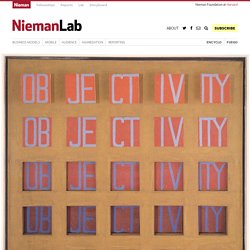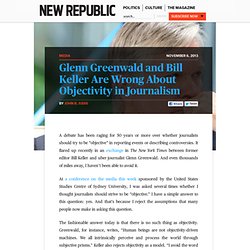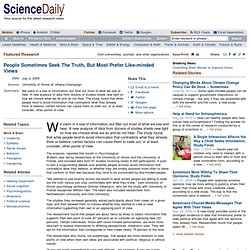

For the First Time, More People Get News Online Than From Newspapers. As of the end of 2010, more people get their news from the Internet than from newspapers — and more ad dollars went to online outlets than to newspapers, too.

In surveys conducted by the Pew Project for Excellence in Journalism, 34% of respondents said they read news online within the past 24 hours (as opposed to 31% who favored newspapers); and a full 41% said they get most of their news online, 10% more than those who said they got most of their news from a newspaper. Of course, the 18-to-29-year-old group overwhelmingly cast their vote with the web; 65% said the Internet was their main news source.
Pew's annual State of the Media report showed that the web was the second most popular source of news; local television news is still the number one source for the majority of people. Local TV also led in revenues, with digital media coming in second. In general, it can be said that text-based news audiences are dwindling. For now, though, we continue to look forward. Objectivity and the decades-long shift from “just the facts” to “what does it mean?” If I had only one short sentence to describe it, I’d say that journalism is factual reports of current events.

At least, that’s what I used to say, and I think it’s what most people imagine journalism is. But reports of events have been a shrinking part of American journalism for more than 100 years, as stories have shifted from facts to interpretation. Interpretation: analysis, explanation, context, or “in-depth” reporting. Journalists are increasingly in the business of supplying meaning and narrative. It no longer makes sense to say that the press only publishes facts.
New research shows this change very clearly. This chart is from a paper by Katharine Fink and Michael Schudson of Columbia University, which calls these types of stories “contextual journalism.” Investigative journalism picks up after the 1960s but is still only a small percentage of all front-page stories. …there is no standard terminology for this kind of journalism. I have a suspicion. Glenn Greenwald on Objectivity in Journalism: He's Wrong. A debate has been raging for 50 years or more over whether journalists should try to be “objective” in reporting events or describing controversies.

It flared up recently in an exchange in The New York Times between former editor Bill Keller and uber-journalist Glenn Greenwald. And even thousands of miles away, I haven’t been able to avoid it. At a conference on the media this week sponsored by the United States Studies Centre of Sydney University, I was asked several times whether I thought journalists should strive to be “objective.” I have a simple answer to this question: yes. And that’s because I reject the assumptions that many people now make in asking this question. The fashionable answer today is that there is no such thing as objectivity. There is an old philosophical fallacy at work here that goes back to the works of the 18th century Irish philosopher George Berkeley.
What about Keller’s insistence that impartiality is a better standard than objectivity? People Sometimes Seek The Truth, But Most Prefer Like-minded Views. We swim in a sea of information, but filter out most of what we see and hear.

A new analysis of data from dozens of studies sheds new light on how we choose what we do and do not hear. The study found that while people tend to avoid information that contradicts what they already think or believe, certain factors can cause them to seek out, or at least consider, other points of view. The analysis, reported this month in Psychological Bulletin, was led by researchers at the University of Illinois and the University of Florida, and included data from 91 studies involving nearly 8,000 participants.
It puts to rest a longstanding debate over whether people actively avoid information that contradicts what they believe, or whether they are simply exposed more often to ideas that conform to their own because they tend to be surrounded by like-minded people. Certain factors can also induce people to seek out opposing points of view, she said.